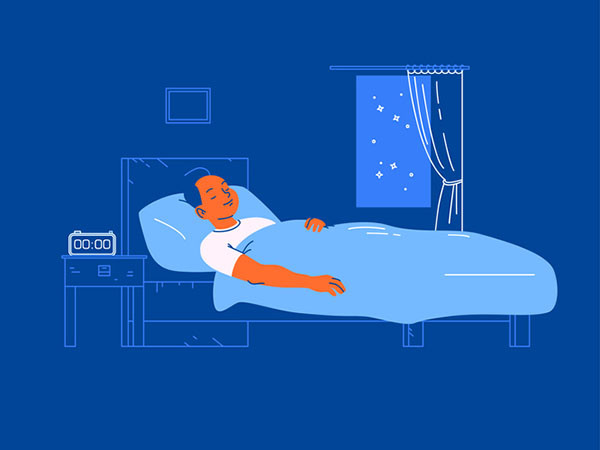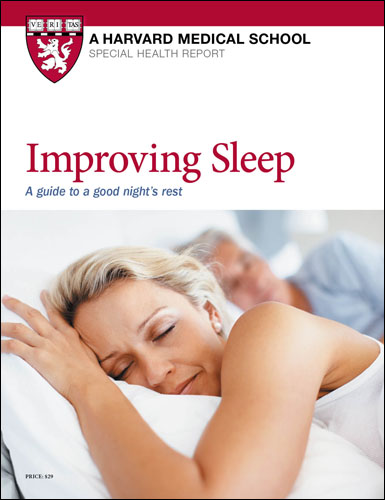Do weighted blankets help with insomnia?

Insomnia is a sleep disorder that affects approximately 10% of adults in the United States. It is characterized by difficulty with falling asleep, staying asleep, and/or waking up too early, at least three times per week for a period of three months or more. Contrary to some beliefs that insomnia will get better by itself over time, evidence suggests that it will persist if not actively treated. In one study, 37.5% of patients with insomnia reported that their insomnia was still a problem five years later.
What are common treatment options used for insomnia?
Perhaps the most common nonpharmacological intervention used for insomnia is something called sleep hygiene. It describes a series of good sleep habits to engage in (such as keeping your bedroom quiet at night) and ones to avoid (turning off electronic devices before going to bed).
Unfortunately, as many patients know, sleep hygiene is not a very effective treatment for insomnia when implemented by itself. When sleep hygiene is used as one part of a multimodal approach, such as cognitive behavioral therapy for insomnia, it can be an effective complement to other important strategies. While cognitive behavioral therapy for insomnia is recommended as the gold-standard treatment by the American Academy of Sleep Medicine and the American College of Physicians, finding a clinician with expertise in behavioral sleep medicine can be a challenge — even via telemedicine.
Integrative treatment approaches are popular
Many people are interested in pursuing other treatment options for insomnia that do not involve prescription medications. Increasing evidence suggests that a number of approaches may be beneficial, including mindfulness-based practices and mind-body movement practices like yoga. Some people may use dietary supplements such as valerian, melatonin, chamomile, and cannabis, though evidence is more limited regarding their efficacy. You should always tell your doctor if you are taking any dietary supplements, as these may interact with other prescription medications.
An integrative option for people with insomnia and a psychiatric disorder
Insomnia is a common issue for people with a psychiatric disorder, possibly because of overlapping neurobiology. For example, someone with insomnia is 10 times more likely than someone without insomnia to also have depression. Among patients receiving psychiatric care, compression and weight have been used therapeutically. It has been hypothesized that the calming (and possibly sleep-promoting) effects of such an approach may be similar to what is experienced with acupressure or massage.
A team of researchers at the Karolinska Institute in Stockholm, Sweden conducted a study to determine whether a weighted metal chain blanket could improve insomnia symptoms compared to a light plastic chain blanket. They recruited outpatients with elevated insomnia symptoms who were being treated for one of several mood disorders: major depressive disorder, bipolar disorder, generalized anxiety disorder, or attention deficit hyperactivity disorder (ADHD).
Participants were randomly assigned to receive either a weighted metal chain blanket or a light blanket with plastic chains that were sewn on, which were the same shape and size as the metal chains on the weighted blanket. Those who were provided with a weighted metal chain blanket first tried on an 8-kilogram (17.6 pound) blanket. If this was too heavy, a 6-kilogram (13.2 pound) blanket was then provided. Over a four-week period, their sleep was assessed using surveys and a wrist-based device called an actigraph.
What did the researchers learn?
Participants who used the weighted metal chain blanket reported that their insomnia symptom severity declined significantly, while those who had used the light blanket did not experience such notable improvements. Furthermore, depressive symptoms and anxiety symptoms decreased much more for those who used the weighted blanket than those who used the light blanket. This secondary finding is consistent with other work showing that interventions designed to treat insomnia can have a meaningful impact on mood.
These promising findings are tempered by data showing that there were no significant improvements to key insomnia metrics, such as the amount of time spent awake after falling asleep, when sleep was tracked objectively using the actigraph. Other research conducted in children has also failed to demonstrate that weighted blankets significantly change sleep outcomes when measured using an actigraph.
Should you buy a weighted blanket?
While these findings are intriguing, more research is needed. It is important to note that there is a very real placebo effect for insomnia symptoms. This means that if you are someone who believes a weighted blanket could have a positive effect on your sleep tonight… well, it's quite possible that it will. For healthy adults, weighted blankets are considered safe as long as the individual can lift the blanket off when necessary. Because sleep is such a subjective experience, the cost of a weighted blanket may be money well spent — as long as you don't forget that there are other options available to treat insomnia, with much more research data to support their effectiveness.
About the Author

Eric Zhou, PhD, Contributor
Disclaimer:
As a service to our readers, Harvard Health Publishing provides access to our library of archived content. Please note the date of last review or update on all articles.
No content on this site, regardless of date, should ever be used as a substitute for direct medical advice from your doctor or other qualified clinician.
















